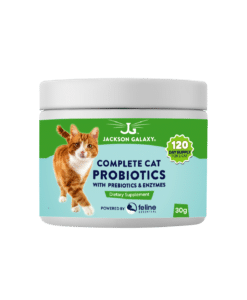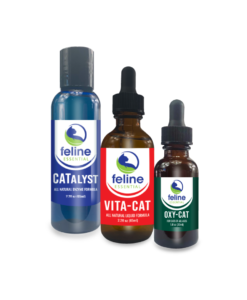Cats will often develop food sensitivities if fed the same diet over an extended period of time. This is most common with proteins like fish or chicken. Cats in the wild will eat a variety of foods in the wild, so that’s how we want to feed them in our homes as well. After all, variety is the spice of life!
The health of the gut is so important. 80% of the immune system lies in the gut of our cats, so feeding them different proteins will help diversify their microbiome – making a strong immune system. If we fail to do this, the immune system can overreact and create a sensitivity to the food.
Sometimes we mistake food sensitivities as allergies. This is because the symptoms are often similar.
Common symptoms of these sensitivities include:
- Itchy skin and hair loss
- Red, inflamed skin
- Chronic ear problems
- Vomiting or diarrhea
- Coughing, wheezing and sneezing
If your kitty suddenly starts experiencing any of these symptoms it is important to have them checked by a vet first. This is just to rule out infection that may need to be treated quickly. Once the health is cleared, let’s look at the diet. If your cat has been eating the same food for every meal, try switching it up. Novel proteins like rabbit, duck, quail and venison are great alternatives that most cats like.
Our cat, Pooh Bear, developed sores on his lips years ago. We took him to the vet and they suggested steroids. After doing some research online we decided that maybe this was a sensitivity to fish (since it was in every food we fed at the time). We took fish out of the diet and the sores cleared up within a couple weeks. No steroids needed!
Recommended Product for Food Sensitivities in Cats




Recent Comments